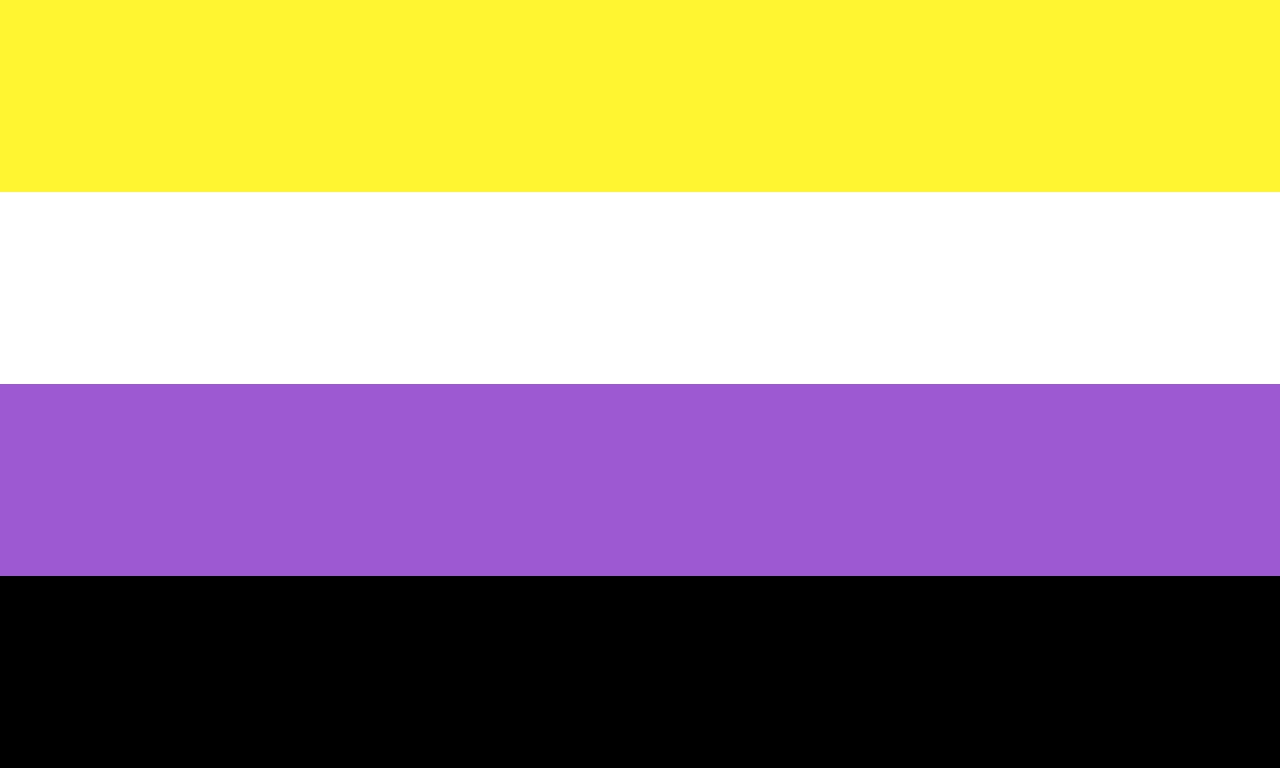In today’s diverse and ever-evolving world, it’s crucial to foster inclusive and respectful relationships.
One aspect of inclusivity that deserves attention is understanding and embracing different gender identities. Non-binary individuals, who identify outside the traditional gender binary of male or female, contribute to the rich tapestry of human experience.
This blog post aims to shed light on what it means to be non-binary in a relationship, providing valuable insights, information, and answering frequently asked questions. Join us on this informative journey as we explore the depths of gender identity and its impact on relationships.
Table of Contents
- Understanding Non-Binary Identity
- Non-Binary Relationships
- Communication and Support
- Challenges and Empathy
- 10 Interesting Facts About Non-Binary Individuals
- Frequently Asked Questions
- Q: What does non-binary mean?
- Q: How do non-binary individuals express their gender identity?
- Q: What pronouns do non-binary people use?
- Q: Can non-binary individuals be in relationships with people of any gender?
- Q: How can I be supportive of my non-binary partner?
- Q: Are non-binary individuals part of the LGBTQ+ community?
- Q: Can non-binary individuals undergo medical transition?
- Q: Is non-binary a new concept?
- Q: How can I educate myself about non-binary identities?
- Q: Why is inclusivity important in relationships?
1. Understanding Non-Binary Identity
Non-binary is a term used to describe individuals whose gender identity does not align strictly with the traditional binary of male or female. It recognizes the existence of a diverse gender spectrum and challenges the societal notion that gender is solely determined by biological sex. Non-binary individuals may identify as genderqueer, genderfluid, agender, bigender, or other identities that go beyond the male-female binary.
2. Non-Binary Relationships
When it comes to relationships, non-binary individuals navigate the same emotional landscapes as their cisgender counterparts. Their experiences, desires, and challenges in relationships are diverse and unique to each individual. It is essential to approach relationships with openness, respect, and a willingness to understand and support one another.
3. Communication and Support
Effective communication and support are crucial in fostering healthy relationships with non-binary individuals. Here are some key points to consider:
- Open Dialogue: Encourage open conversations about gender identity, pronouns, and any specific needs or concerns within the relationship.
- Respect Pronouns: Use the pronouns preferred by your non-binary partner, which may include they/them, ze/hir, or other gender-neutral pronouns.
- Active Listening: Listen attentively to your partner’s experiences, feelings, and challenges, without judgment or assumptions.
- Educate Yourself: Take the initiative to educate yourself about non-binary identities, gender diversity, and LGBTQ+ issues to better understand your partner’s perspective.
4. Challenges and Empathy
Non-binary individuals may face unique challenges in relationships due to societal misconceptions and biases. Empathy, patience, and a willingness to learn can help address these challenges:
- Misgendering: Non-binary individuals may experience misgendering when others use incorrect pronouns or assign them a gender identity that they do not identify with. Be respectful and make a conscious effort to use the correct pronouns.
- Invalidation: Some people may dismiss or invalidate non-binary identities, considering them as a phase or denying their existence. As a partner, it is essential to validate and affirm your non-binary partner’s identity.
- Support Systems: Non-binary individuals may find solace in LGBTQ+ communities and support groups. Encourage your partner to seek out these resources for additional support.
5. Ten Interesting Facts About Non-Binary Individuals
- Non-binary identities have existed throughout history and across cultures.
- The term “non-binary” gained popularity in the 1990s but has been used by communities long before that.
- Non-binary individuals may choose to transition socially, medically, or not at all, based on their personal preferences.
- Non-binary people can have diverse gender expressions, including masculine, feminine, androgynous, or gender-neutral.
- Non-binary individuals may experience dysphoria related to their gender identity, similar to binary transgender individuals.
- Many non-binary people use gender-neutral pronouns such as they/them, but preferences can vary individually.
- Non-binary individuals can have romantic and sexual attractions across the gender spectrum.
- Non-binary identities are not a reflection of a person’s sexual orientation. Sexual orientation refers to who someone is attracted to.
- Non-binary individuals may choose to undergo legal gender recognition processes to align their documentation with their gender identity.
- Non-binary visibility and representation have increased in recent years, fostering broader awareness and acceptance.
6. Frequently Asked Questions
Q: What does non-binary mean?
A: Non-binary is a term used to describe individuals whose gender identity does not conform to the binary concept of male or female.
Q: How do non-binary individuals express their gender identity?
A: Non-binary individuals express their gender identity in various ways. This can include clothing choices, hairstyles, pronoun preferences, and adopting a gender-neutral or fluid presentation.
Q: What pronouns do non-binary people use?
A: Non-binary individuals may use gender-neutral pronouns such as they/them, ze/hir, or other pronouns that align with their gender identity.
Q: Can non-binary individuals be in relationships with people of any gender?
A: Yes, non-binary individuals can be in relationships with people of any gender. Gender identity does not determine one’s capacity for love or attraction.
Q: How can I be supportive of my non-binary partner?
A: To support your non-binary partner, practice active listening, use their preferred pronouns, educate yourself about gender diversity, and be respectful of their gender identity and expression.
Q: Are non-binary individuals part of the LGBTQ+ community?
A: Yes, non-binary individuals are part of the LGBTQ+ community. They contribute to the diverse tapestry of gender and sexual orientations within the community.
Q: Can non-binary individuals undergo medical transition?
A: Non-binary individuals may choose to undergo medical transition, which can include hormone therapy, surgeries, or other interventions. However, each person’s journey is unique and personal choices vary.
Q: Is non-binary a new concept?
A: Non-binary identities have existed throughout history and across cultures, although the terminology and understanding have evolved over time.
Q: How can I educate myself about non-binary identities?
A: Educate yourself by reading books, articles, and online resources about gender diversity, attending workshops or seminars, and engaging in respectful conversations with non-binary individuals.
Q: Why is inclusivity important in relationships?
A: Inclusivity is crucial in relationships as it fosters understanding, respect, and acceptance. It allows individuals to feel valued and affirmed for who they are, creating a safe and nurturing environment for personal growth and connection.
By delving into the intricacies of non-binary identity within relationships, we broaden our understanding of gender diversity and strengthen our commitment to inclusivity.
In the United Kingdom, there are several charities and organizations that provide support and resources specifically for non-binary individuals. These organizations aim to create inclusive spaces, offer guidance, and advocate for the rights and well-being of non-binary people. Some prominent UK-based charities and organizations include:
- Mermaids – Mermaids is a UK charity that supports gender-diverse children, young people, and their families. They provide helpline services, advocacy, and resources for individuals exploring their gender identity, including non-binary individuals.
- Gendered Intelligence – Gendered Intelligence is an organization that works with the trans community, including non-binary individuals, to improve understanding and support. They offer workshops, mentoring programs, and resources for young people, families, and professionals.
- UK Black Pride – UK Black Pride is a celebration of LGBTQ+ individuals from Black, Asian, and minority ethnic (BAME) backgrounds. They work towards inclusivity and provide a safe space for non-binary individuals within the broader LGBTQ+ community.
- Stonewall UK – Stonewall UK is a leading LGBTQ+ rights organization that campaigns for equality and inclusion. They provide information, support, and resources for all LGBTQ+ individuals, including non-binary people.
In the United States, there are also numerous organizations and charities dedicated to supporting non-binary individuals and promoting inclusivity. These organizations work towards advocacy, education, and community support. Here are a few notable US-based charities and organizations:
- National Center for Transgender Equality – The National Center for Transgender Equality is a US-based organization that advocates for policies and legal protections for transgender and non-binary individuals. They provide resources, research, and work towards social and political equality.
- Transgender Legal Defense & Education Fund – This organization is committed to advancing the rights of transgender and non-binary individuals through legal advocacy. They offer legal assistance, education, and public policy advocacy.
- Gender Diversity – Gender Diversity is a US-based organization that supports transgender and gender-diverse youth and their families. They provide educational resources, support groups, and training for professionals working with gender-diverse youth.
- GLAAD – GLAAD is a media advocacy organization that focuses on promoting positive representation and fair portrayal of LGBTQ+ individuals, including non-binary people. They work with the media industry to increase visibility and understanding.
These are just a few examples of charities and organizations in the UK and US that provide support to non-binary individuals. It’s important to note that there are many more local and regional organizations working towards creating inclusive environments and offering resources for non-binary individuals and the broader LGBTQ+ community.
Embracing and supporting non-binary individuals in relationships contributes to a more compassionate and respectful society. Remember, every relationship is unique, and maintaining open communication, empathy, and mutual respect are key to building strong and thriving partnerships.

